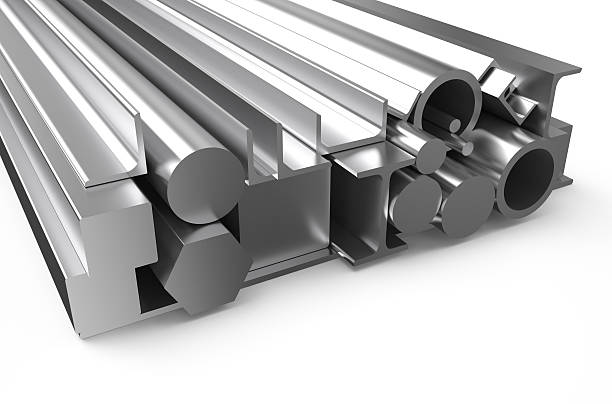
ASTM A565/A565M - Martensitic Stainless Steel Bars for High-Temperature Service

Dr. Robert Anderson
Senior Materials Scientist
Overview of ASTM A565/A565M
The ASTM A565/A565M standard, reapproved in 2009, specifies hot-finished and cold-finished martensitic chromium steel bars for high-temperature service. These bars are used in applications requiring strength up to 1200°F (650°C) and oxidation resistance up to 1450°F (790°C) under low stress. This standard is critical for industries like aerospace, power generation, and chemical processing.
Below, you’ll find all grades, their chemical composition, mechanical properties, and technical requirements, with an interactive search feature for easy reference.
Technical Requirements
Condition and Finish
Bars are available in the following conditions and finishes:
- Hot-Finished: Hot rolled or rough turned (rounds only).
- Cold-Finished: Cold drawn, centerless ground, or polished (rounds only).
- Heat-Treated Conditions: Condition HT (heat-treated for high-temperature service) or Condition H (heat-treated).
Chemical Requirements
Each alloy must conform to the chemical composition in Table 1, verified per ASTM A751 test methods.
Metallurgical Requirements
The microstructure must contain no more than 5% delta-ferrite after heat treatment, as specified in Table 2. Visual examination is acceptable, but ASTM E562 testing is used if delta-ferrite exceeds the limit.
Mechanical Properties Requirements
Materials must meet the mechanical properties in Table 3 for the ordered condition. Materials in Condition A or T must achieve Condition HT properties after heat treatment per Table 2. Yield strength is determined by the offset method (ASTM A370), and impact strength is measured at 70-80°F (21-27°C) using Charpy V-notch tests. For UNS S42226, stress rupture testing follows ASTM E292, with rupture in the smooth section of the test specimen.
Chemical Composition (Table 1)
Below is the complete chemical composition for all grades specified in ASTM A565/A565M. Use the search bar to filter by grade or UNS designation.
| Grade | UNS | Carbon | Manganese | Phosphorus | Sulfur | Silicon | Chromium | Nickel | Molybdenum | Vanadium | Tungsten |
|---|---|---|---|---|---|---|---|---|---|---|---|
| XM-32 | K64152 | 0.08-0.15 | 0.50-0.90 | 0.025 max | 0.025 max | 0.35 max | 11.00-12.50 | 2.00-3.00 | 1.50-2.00 | 0.25-0.40 | — |
| — | S41041 | 0.13-0.18 | 0.40-0.60 | 0.030 max | 0.030 max | 0.50 max | 11.50-13.00 | 0.50 max | 0.20 max | — | — |
| — | S41425 | 0.05 max | 0.50-1.00 | 0.02 max | 0.030 max | 0.50 max | 12.00-15.00 | 0.50-1.00 | 0.20 max | — | — |
| 615 | S41800 | 0.15-0.20 | 0.50 max | 0.040 max | 0.030 max | 0.50 max | 12.00-14.00 | 0.50-1.00 | 0.20-0.50 | — | — |
| 616 | S42200 | 0.20-0.25 | 0.50-1.00 | 0.025 max | 0.025 max | 0.50 max | 11.00-12.50 | 0.50-1.00 | 0.20-0.50 | 0.20-0.30 | 0.20-0.30 |
| 619 | S42300 | 0.27-0.32 | 0.95-1.35 | 0.025 max | 0.025 max | 0.50 max | 11.00-12.50 | 0.50-1.00 | 0.20-0.50 | 0.20-0.30 | 0.20-0.30 |
| — | S42226 | 0.15-0.20 | 0.50-0.80 | 0.025 max | 0.030 max | 0.50 max | 11.00-12.50 | 0.50-1.00 | 0.20-0.50 | 0.20-0.30 | 0.20-0.30 |
Mechanical Properties (Table 3)
The mechanical properties for each grade in various conditions are listed below. Use the search bar to filter by grade, UNS, or condition.
| Grade | UNS | Condition | Tensile Strength min, ksi [MPa] | Yield Strength min, 0.2% Offset, ksi [MPa] | Elongation in 2 in. [50 mm] or 4D, min, % | Reduction of Area, min, % | Charpy V-notch, min, ft·lbf [J] | Brinell Hardness |
|---|---|---|---|---|---|---|---|---|
| 615 | S41800 | A | — | — | — | — | — | — |
| 615 | S41800 | H | 140 [965] | 150 [760] | 15 | 45 | — | 311 max |
| — | S41425 | HT | 120 [825] | 95 [655] | 15 | 45 | 50 [70] | 322 to 352 |
| 616 | S42200 | A | — | — | — | — | — | 248 max |
| 616 | S42200 | T | — | — | — | — | — | 285 max |
| 616 | S42200 | HT | 140 [965] | 150 [760] | 15 | 30 | 8 [11] | 302 to 352 |
| 616 | S42200 | H | 120 [825] | 150 [760] | 15 | 30 | 8 [11] | 322 to 352 |
| 619 | S42300 | A | — | — | — | — | — | 248 max |
| 619 | S42300 | T | — | — | — | — | — | 285 max |
| 619 | S42300 | HT | 140 [965] | 150 [760] | 15 | 20 | 8 [11] | 302 to 352 |
| XM-32 | K64152 | A | — | — | — | — | — | 311 max |
| XM-32 | K64152 | HT | 145 [1000] | 150 [795] | 15 | 30 | 30 [40] | 322 to 352 |
| — | S41041 | HT | 120 [795] | 150 [795] | 15 | 30 | 20 [27] | 277 max |
| — | S42226 | A | — | — | — | — | — | 302 max |
| — | S42226 | HT | 140 [965] | 150 [790] | 15 | 45 | 8 [11] | 321 max |
Note: For grades in Condition A or T, mechanical properties are achieved after heat treatment to Condition HT. Certification requires agreement between purchaser and vendor.
Applications and Sourcing
These martensitic stainless steel bars are critical for high-temperature applications in aerospace (e.g., turbine blades), power generation, and chemical processing. To source compliant materials, work with certified suppliers and request test certifications per ASTM A751 (chemical analysis) and A370 (mechanical testing).